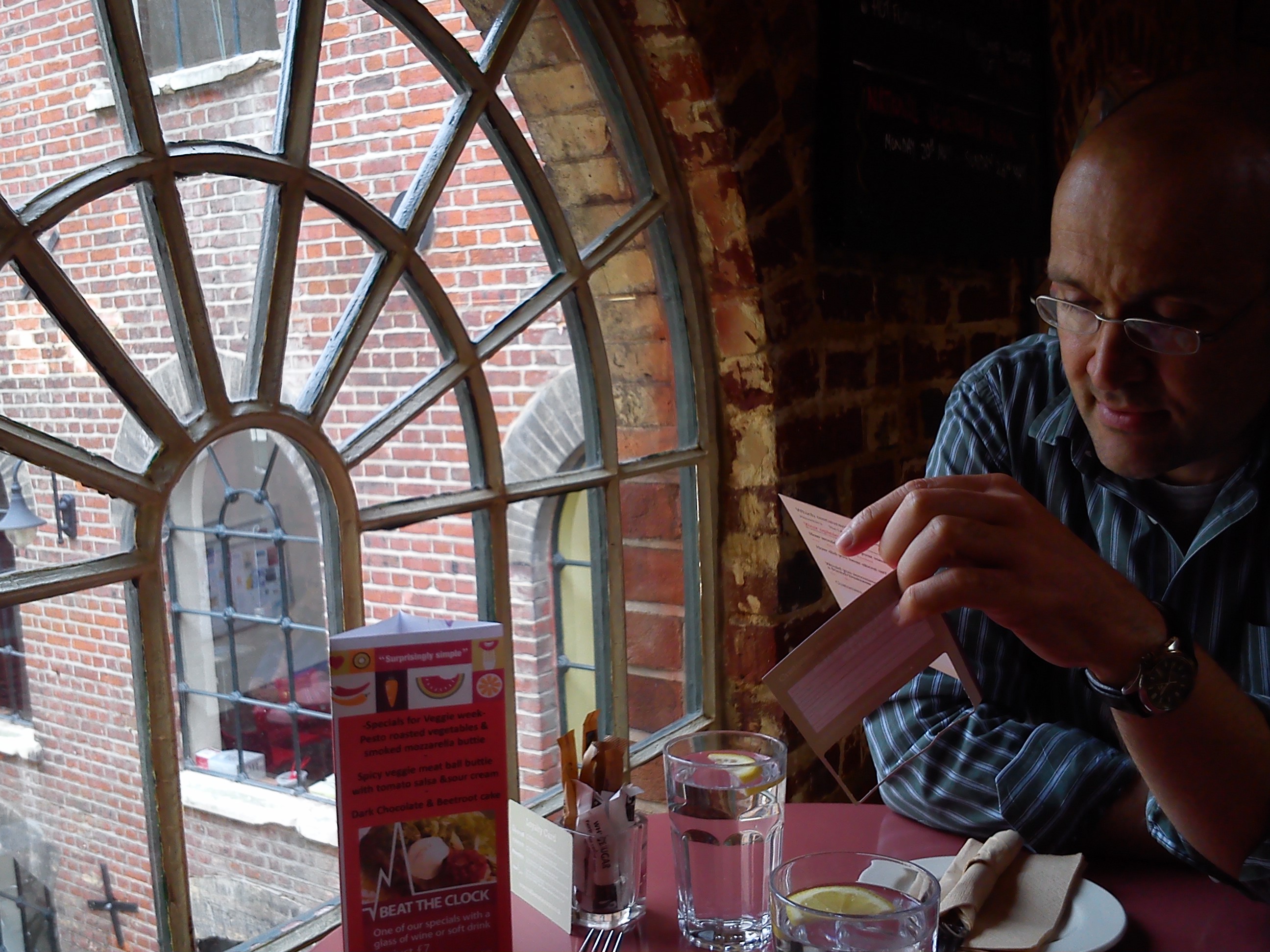The festive season is upon us, once again.
It seems amazing to me that a whole year has gone by since Eileen emailed me in Norwich and asked me to write my first ‘little something’ for the Christmas edition of The Messenger. And what a year this has been! Every close member of my family has embarked on a new adventure, here in Cambridge. There have been blessings and challenges, sad departings and joyful arrivals, new friends, new Christian family and a fresh mission from the Lord.
I thank our wonderful Father for such times. I’m so looking forward to our first Cambridge Christmas.
Bearing in mind the time of year, I thought I’d better write something about three gifts. I’m not, however, thinking of the gold frankincense and myrrh of the Magi. For this article, I’m considering the loaf of bread, cake of dates and cake of raisins mentioned in 2 Samuel 6:
17 They brought the ark of the Lord and set it in its place inside the tent that David had pitched for it, and David sacrificed burnt offerings and fellowship offerings before the Lord. 18 After he had finished sacrificing the burnt offerings and fellowship offerings, he blessed the people in the name of the Lord Almighty. 19 Then he gave a loaf of bread, a cake of dates and a cake of raisins to each person in the whole crowd of Israelites, both men and women. And all the people went to their homes.
Wonderful things were happening in Jerusalem and God’s people were heartily celebrating. David spoke a blessing over the people, but didn’t let them leave the celebrations ‘empty handed’. Three gifts were given. The significance of these gifts is generally believed to be in their symbolism – nonetheless, I’m sure they were also tasty treats!
In many ancient and modern cultures, bread symbolises life itself. Bread is a fundamental part of the civilised human diet. It is often taken for granted. Rather like air, you don’t usually take too much notice of bread, until it’s not around. The Jewish people faced death from starvation as they wandered in the wilderness. God’s response was to shower His people with bread, with life, ‘Then the Lord said to Moses, “I will rain down bread from heaven for you…” (Exodus 16:4)
In a world that was spiritually starving, our dear Lord Jesus described Himself as ‘living bread’ (John 6:51). He encouraged us to pray for bread every day. On the night that He was betrayed, He took bread and, when He had given thanks, He gave it to His disciples saying, “This is my body, which is broken for you.” The gift of bread is the gift of life.
Date cake is a less common gift, but one that would have been familiar to David’s fellow Jews. It was traditionally cooked and eaten at Passover – a time of remembering God’s mighty act of saving His people from the Egyptians. The gift of date cake is a clear reminder of the Lord’s power to save.
David’s raisin cakes wouldn’t have looked or tasted like a modern fruity sponge cake. Rather, they were made by pressing and drying raisins, and raisins only, into a solid block. It was a sweet delicacy, where all the goodness of many grapes was condensed into each mouthful. It was symbolic of harvest and fruitfulness.
Well done, King David! What a genuinely lovely selection of presents to give: reminders of God’s blessings of life, salvation and fruitfulness. In Christ Jesus, we have the opportunity to offer people the same gifts that David gave, this Christmastime and at any time of year. By sharing the Good News of our faith with those around us, we reveal the ultimate life, ultimate salvation and ultimate goodness that entered the world when Jesus was born in Bethlehem.
It is my prayer that no one coming into St A’s to celebrate this year will leave empty handed.






Wonderful article!
Greetings from South Africa